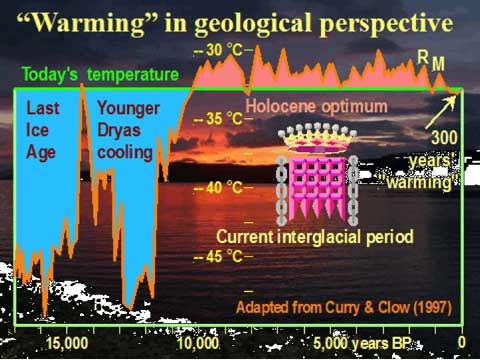In this deleriously funny send-up of the work of Chrisopher Walter (the Third Viscount Monckton of Brenchley), writer Gareth Renowden (Hot Topic: Global Warming and the Future of New Zealand) renders a readable parable even while humiliating Monckton for his incompetence and/or his dishonesty.
Renowden has discovered an unsourceable graph in Monckton’s latest paper for the Exxon-sponsored Science and Public Policy Institute. Said graph (which Monckton incorrectly attributes to Curry and Clow 1977) appears to be an inventively modified version of a work published by Cuffey and Clow in the Journal of Geophysical Research in 1977.
Thanks to Ian Forrester and to Tim Lambert at Deltoid for turning this up.
Subscribe to our newsletter
Stay up to date with DeSmog news and alerts







